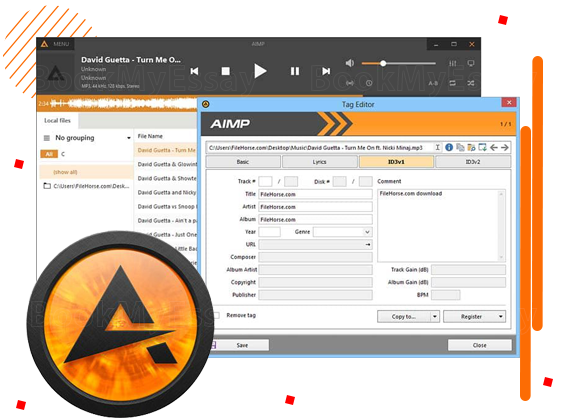The functionality can be extended by adding DSP, input, and plug-ins from Winamp. The global and local hotkeys are customized. It provides complete Unicode support. Users can convert AudioCS to OGG, MP3, WMA or WAV. You can get sound from all audio devices on your computer to OGG, MP3, WMA, or WAV format.
It offers the basic tools that you can expect from music players. It can evolve into a special one after you find out the special features. It can support over 20 audio formats and 32-bit digital audio. It converts different formats and can customize with Winamp add-ons.
What are the Features of AIMP?
AIMP supports audio codecs such as AAC, MP3, Ogg Vorbis, Dolby AC-3, Speex, Opus, Apple Lossless, Windows Media Auto, WAV, FLAC, APE, DTS Audio, True Audio, MP1, Musepack, MP2, WavPack, OptimFROG, MO3, Impulse Tracker, Multitracker Module, MOD, Fasttracker 2 Extended Module, and Tom’s lossless Audio Kompressor or TAK. Other features are discussed in our AIMP homework help service.
It can cache in RAM, the present media file up to 250MB during playback. It supports ASIO, DirectSound, WASAPI audio interfaces and also uses a 32-bit audio processing for an 18-band equalizer and in-built sound effects such as Flanger, Reverb, Pitch, Chorus, Echo, Tempo, Bass, Speed, Voice Remover, and Enhancer.
AIMP can cache 60 seconds of radio streams in RAM. This program has a drawback in that the channel switching is slow because the buffer is initially filled up to a minimum of 25% before playback begins.
Others are:
- Playback and Bookmark queue creation
- LastFM scrubber
- CUE sheet support
- Multiple playlists
- Multi-language support
- Multi-user support
- Playing media files till 250 MB from RAM directly
- Auto shutdown/Alarm clock
- It supports skins and plug-ins
- Hotkeys
- Internet radio streaming
- Tag and playlist editor
- Audio library file organizing and search






 3 Bellbridge Dr, Hoppers Crossing, Melbourne VIC 3029
3 Bellbridge Dr, Hoppers Crossing, Melbourne VIC 3029
